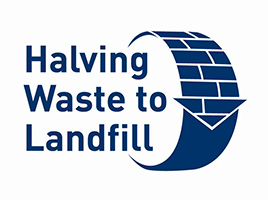It’s no secret that the UK produces far more waste than it is able to reuse. With only a small manufacturing industry the UK is unable to deal with its recyclable materials by itself and equally
does not have enough waste to energy plants to deal with the
capacity of waste being produced. We therefore send it to
countries all over the world, including those in Europe, to either
be recycled and made into something else or turned into a fuel in
energy from waste plants.
Although materials for recycling are mostly sent to Asia, every
year there is still around 3 to 4 million tonnes of rubbish that gets
sent to countries within the EU. On top of this we send another
3.5 million tonnes that has been turned into fuel.
The UK currently gains £1 billion in value from the sales of our recyclables. However we have to pay around
400 million pounds to Dutch, German and Scandinavian waste to energy plants to take our rubbish so we can
avoid sending it to landfill. We are therefore heavily reliant on the EU to help us to treat waste in an
environmentally sustainable manor.
What will happen if we have a ‘no deal’ Brexit?
Businesses in the Waste Management industry are very concerned at the prospect of a ‘no deal’ Brexit. The
rubbish trade within the EU is currently tariff free. However if a free trade deal isn’t struck we could expect
tariff charges of up to 7.5% on exported waste. We could also incur potential taxes and administrative
problems at ports. There is no plan in place for the transition period should we leave without a deal. Where
will the material go the day after Brexit? What happens to our rubbish then?
If the rubbish stays here in the UK it could mean up to an extra 400 trucks to drive it around the country to tip
into various landfills. So not only can we expect an increase in costs to businesses and councils from tariffs and
taxes but there will be a cost to our environment too with an increase in landfill sites and illegal rubbish
disposal.
It could be argued that Brexit will provide an opportunity for our country to become more economically
circular in how we deal with our waste and increase our own facilities to accommodate it. A plant with the
necessary facilities however can take between 5-7 years to plan and build, making it a rather unrealistic and
time consuming task.
To conclude, I think it is clear that the best we can hope for is a deal where trade impacts are minimised.





